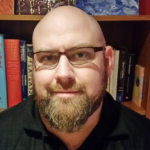- This topic has 7 replies, 2 voices, and was last updated 6 years, 9 months ago by
 Scott Newman.
Scott Newman.
-
AuthorPosts
-
-
April 16, 2019 at 4:19 am #51108
 park sun geunParticipant
park sun geunParticipantHello,
I have some question.
I want to make Mirror and the light enter the photonic crystal (FCC 111 direction).
How can I do that? -
April 16, 2019 at 8:51 am #51115
 Scott NewmanModerator
Scott NewmanModeratorHello Park,
You are going to have to provide more information regarding what you have tried. There is a photonic crystal component called PBG Crystal Structure within OptiFDTD that supports 2D and 3D photonic crystals. Within it you can select an FCC structure and define your lattice constant and atoms.
We do have a number of photonic crystal references and tutorials:
- If you are using version 14.0 or later then tutorial number 3 in the manual walks you through the creation and analysis of a 2D structure.
- Lesson 3 in the OptiFDTD archives also provides walkthroughs <a href=”https://optiwave.com/category/optifdtd-manuals/optifdtd-background-and-tutorials/a5-lesson-3-photonic-crystal-and-photonic-band-gap/”>Link</a>
- We also have a number of webinars some of which include work with photonic crystals <a href=”https://www.gotostage.com/channel/optiwave”>Link</a>.
-
April 17, 2019 at 12:41 am #51131
 park sun geunParticipant
park sun geunParticipantI want to shoot light on the FCC ‘(111)’ side. But optiFDTD PBG Crystal structure can control azimuth angle. FCC 111 structure is similar to Hexagonal Close Packed lattice. source direction is z direction(tilt angle can control y direction). I think this is not enough. If possible, make the incidence ㅣlight perpendicular to the FCC 111 surface. The rotation limitaion seems to let the structure limit the angle of incidence. So, i want to make mirror.
Thank you, Scott
-
April 18, 2019 at 4:08 pm #51153
 Scott NewmanModerator
Scott NewmanModeratorPark you are limited to being able to rotate the crystal in the azimuth and the source in y. There are upgrades to the source coming but that will not help you right now. That being said I do believe the FCC crystal in OptiFDTD is aligned such that a z propagation will strike the 111 face. Here is a cross section (XY) slice through the crystal.
-
April 21, 2019 at 8:49 pm #51162
 park sun geunParticipant
park sun geunParticipantI want to propagate light to FCC (111) side. Fig.1 is FCC 111 face. FCC XY Slice is not FCC (111). I need mirror, because Fig.2. please,
Get the mirror setting method -
April 23, 2019 at 11:24 am #51177
 Scott NewmanModerator
Scott NewmanModeratorBased on your recent diagram I do not believe the current set of angle configurations for the PBG component and source would allow you to hit the FCC (111) face.
Scott
-
April 25, 2019 at 2:43 am #51194
 park sun geunParticipant
park sun geunParticipantCould you make it? I don’t know how can i do that….
-
April 26, 2019 at 2:01 pm #51206
 Scott NewmanModerator
Scott NewmanModeratorI have been thinking about the issue and I see 3 possible ways to implement this crystal structure.
- Create the crystal in a 3D drafting program capable of exporting IGES files. Then you can import into OptiFDTD and IGES files can be rotated relative to all three axes in 3D.
- The PBG component does allow users to have a custom defined lattice. It should be possible to determine the lattice vectors for an FCC lattice rotated so you are striking the 111 face. Please note that the A, B, C basis vectors defined in the PBG component are not direct matches to the basis vectors typically cited in crystallographic reference. You will need to determine what the necessary basis vectors are yourself.
- Similarly to the previous option if you know the basis vectors (either the crystallographic ones or those matching OptiFDTD) you could develop a VB Script program that will individually create the atoms of your crystal.
The Optiwave forum support is meant as general support with the product and as such I can explain how to use the product and point you in the right direction with your project but I cannot provide full design support. Optiwave can do design work on contract, please contact support@optiwave.com in order to obtain a quote for this service.
Scott
-
-
AuthorPosts
- You must be logged in to reply to this topic.

